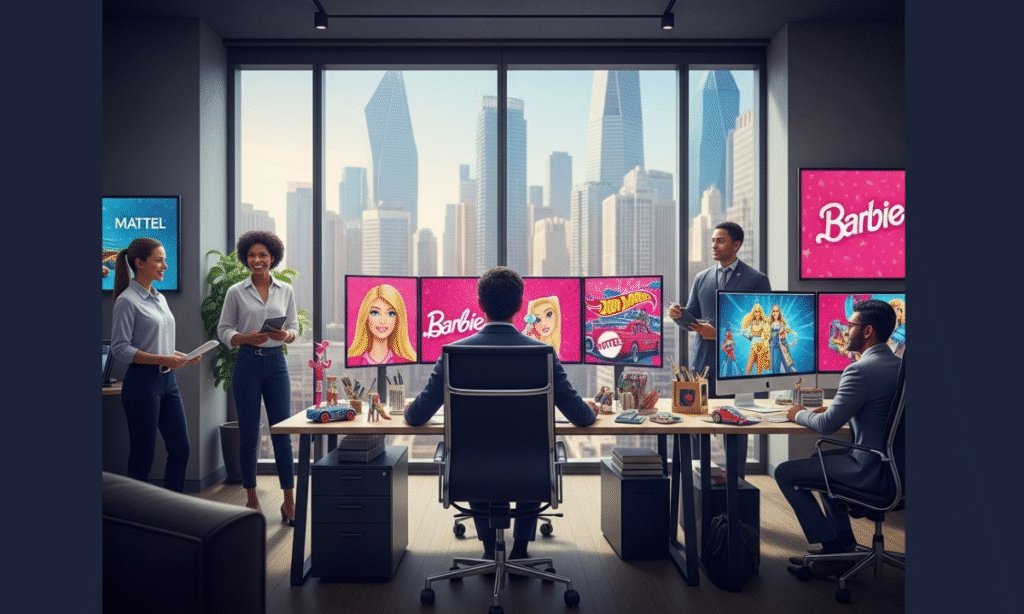Toy Maker to IP Powerhouse : The move towards AI comes at a crucial time for Mattel. Like many companies in the toy industry, Mattel has faced significant challenges due to global economic uncertainty. Reduced consumer spending and rising operational costs have pressured the company’s traditional business model.
Recognizing these shifts, Mattel’s CEO Ynon Kreiz has been steering the company towards becoming an intellectual property (IP)-focused enterprise rather than solely a toy manufacturer. This strategic pivot allows Mattel to leverage its beloved brands across multiple platforms, including movies, television, and digital media.
The enormous success of the 2023 Barbie movie, starring Margot Robbie, marked a turning point. The film not only generated substantial box office revenue but also revitalized interest in the Barbie brand, opening doors for broader merchandising and licensing opportunities.
Currently, Mattel has several high-profile projects in development, including:

- “Masters of the Universe” being filmed in London.
- “Matchbox” being shot in Morocco.
- 14 additional movies and TV shows in various stages of production.
“You don’t need another Barbie movie to have a positive impact,” Kreiz confidently stated, highlighting the company’s robust portfolio of valuable IPs.
Broader Industry Implications: AI in Toy Manufacturing
Mattel’s partnership with OpenAI could set a precedent for the entire toy industry. As AI technology becomes more accessible, we may soon see:
- Smarter Supply Chains: Predictive analytics to better forecast demand and manage inventory.
- Personalized Customer Experiences: Customized toy recommendations based on a child’s preferences and developmental needs.
- Enhanced Safety Features: AI monitoring to ensure toys meet safety standards and alert parents of potential risks.
- Sustainable Production: AI-driven optimization in material usage, reducing waste and promoting eco-friendly manufacturing.
These innovations could redefine how toys are designed, produced, and experienced, creating richer and more meaningful interactions for children while addressing many of the industry’s ongoing challenges.
Key Takeaways
- Mattel is partnering with OpenAI to integrate AI into toy design and internal operations.
- The company plans to launch its first AI-powered product by the end of the year.
- Mattel is transforming from a traditional toy manufacturer to an IP-centric company.
- AI integration could set new standards for the entire toy industry.
Conclusion: A Brave New World of Play
As technology continues to blur the lines between the physical and digital worlds, Mattel’s collaboration with OpenAI represents a forward-thinking approach to staying relevant and innovative. By embracing AI, Mattel is not only enhancing the play experience but also fortifying its position in an increasingly competitive market.
For parents, children, and collectors, this means a future where toys are more interactive, educational, and personalized than ever before. And for the toy industry, it may very well be the dawn of a new, AI-powered era.